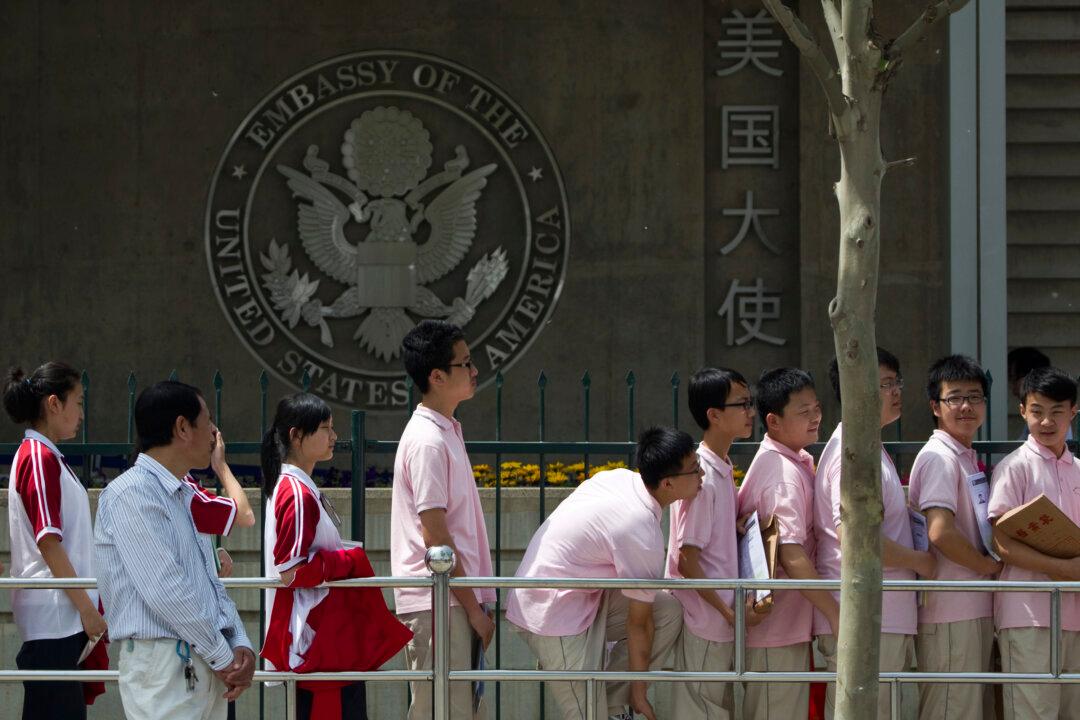Commentary
A student applicant from China, who was admitted to nearly 10 U.S. universities to study computer science, was denied a visa recently, according to the South China Morning Post. The U.S. embassy in Beijing wrote a letter saying the student’s father’s employment with Chinese law enforcement, and the failure of China to accept repatriation of Chinese citizens in the United States subject to orders of removal, caused the visa denial.





